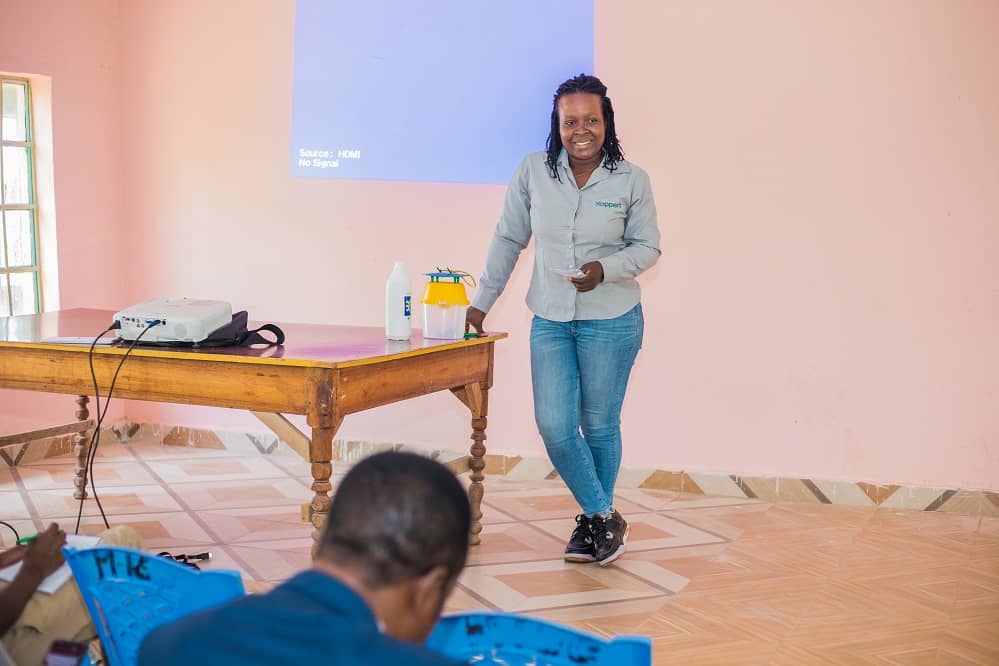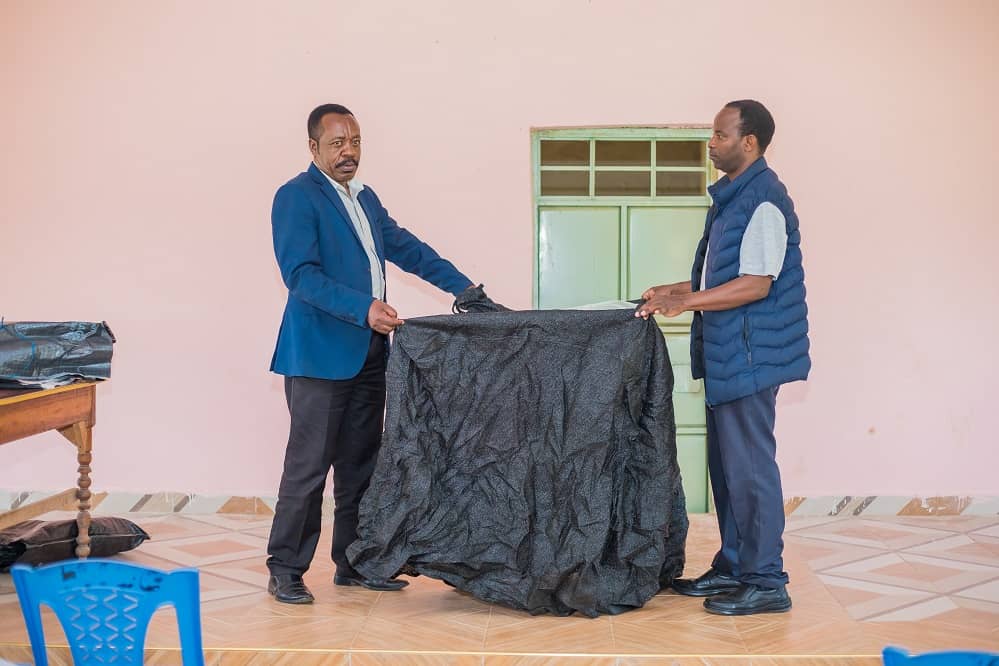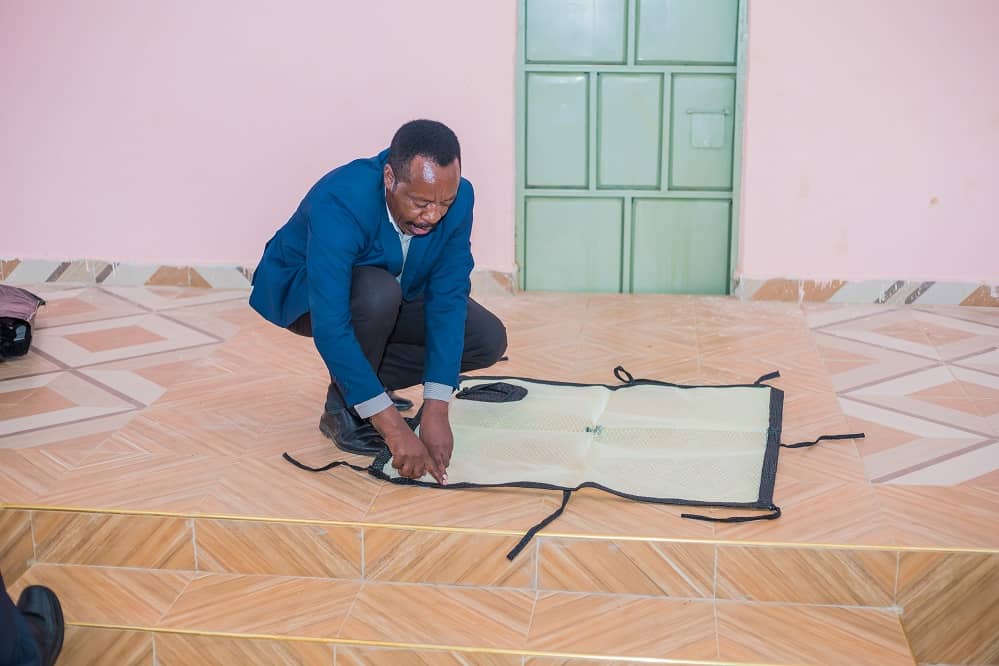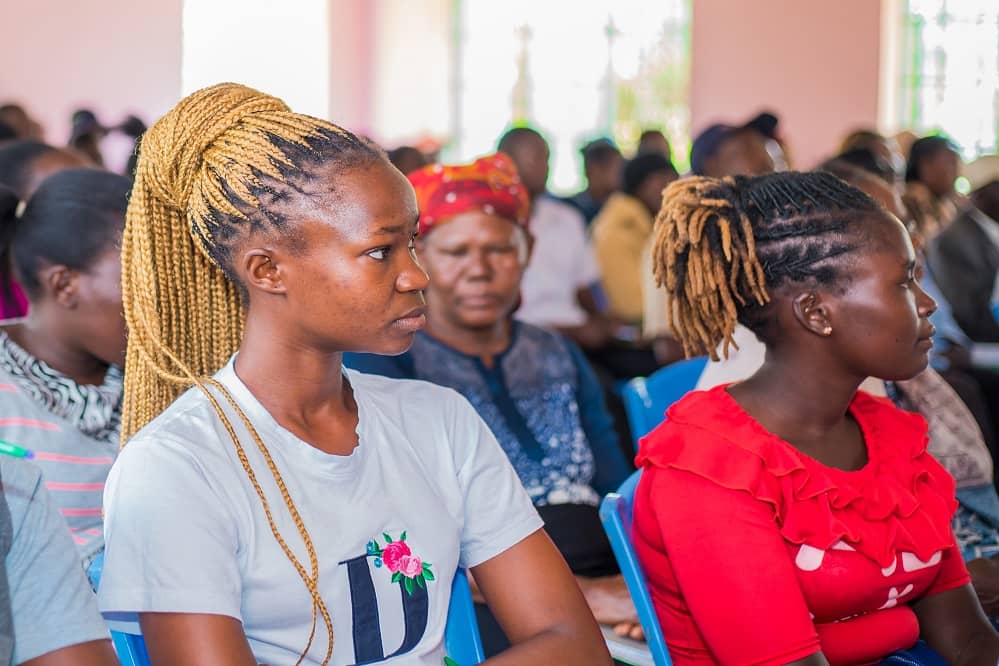With support from the Embassy of the Netherlands, KEPHIS and Makueni County trained farmers in Mwaani (Kenya) on managing fruit flies to ensure safe, high-quality mango production for local and export markets. The workshop promoted sustainable farming, enhanced food security, and strengthened efforts to meet EU standards through collaborative pest control and modern agricultural practices.

In Kenya, mango production ranks second after bananas and is the third most important fruit for export after avocados. Beyond being a delectable and nutritious fruit, mangoes are a lifeline for thousands of households who depend on the value chain for their livelihoods. Rich in vitamins and essential nutrients, mangoes contribute not only to food security but also to economic empowerment in rural communities.
Kenya produces an impressive average of 650,000 metric tons of mangoes annually, generating an estimated USD 84.4 million in gross production value. The eastern regions of the country, particularly Makueni County, are at the heart of this booming sector. As the leading producer, Makueni County contributes nearly 30% of Kenya's total mango supply. With over 4 million mango trees planted across approximately 20,000 hectares of land, the county produces an astounding 200,000 metric tons of mangoes annually, involving 78% of its farming households in cultivation.
Despite these remarkable achievements, the sector is not without its challenges. Farmers often grapple with issues such as pest infestations, post-harvest losses, and limited access to premium markets, which hinder the realization of the crop’s full potential.
The fruit fly, Bactrocera Dorsalis, is an invasive pest native to Africa that poses a significant threat to mango farming. It attacks mangoes at various stages of development, causing premature ripening, blemishes, and shorter shelf lives. These infestations lead to lower-quality produce, which in turn impacts farmers' income. In the worst cases, the damage renders mangoes unmarketable, resulting in substantial financial losses.
As one of the country’s key tropical exports, fruit fly infestation does not only affect the local market but also hampers the export potential of the fruits. For export, mangoes must meet stringent phytosanitary regulations to be accepted in international markets. Back In 2014, Kenya self-imposed a ban on the export of its mangoes for fear that the produce would be blacklisted due to high levels of fruit flies, which are quarantine pests in European markets. The self-imposed ban meant stakeholders urgently needed solutions to address this challenge. A multistakeholder approach was deployed that included national and county governments, research institutions, farmer organizations, regulators, and development partners among other stakeholders, and in 2021, the fruit fly management strategies bore fruit, and the export ban was lifted.
The interventions involved raising awareness among farmers on the negative impact of fruit flies on both the production and trade of mangoes, the Introduction of Integrated Pest Management (IPM) technologies for fruit flies and other pests, the introduction of heat treatment for fresh mango fruits for export, and creation of pest free areas (PFA) and areas of low pest prevalence (ALPP) that are strictly for the production of mangoes for export to major markets. Implementation of these technologies and treatments has greatly improved the quality and safety of mangoes for export, ensuring compliance to international standards.
To sustain these interventions needs continuous training of farmers, to ensure that farmers stay abreast of the latest technologies and solutions towards addressing this challenge. The Kenya Plant Health Inspectorate Services (KEPHIS) and the County Government of Makueni, with support from the Embassy of the Kingdom of The Netherlands, held a training workshop in Mwaani – Makueni County (Kenya).
Makueni has been a successful case study on how farmers can collectively address the fruit fly challenge, where they have created areas of low pest prevalence, through joint farmer efforts from given localities. The farmers come together and in harmony, implement pest control interventions as a block. This has seen the infestation reduce over the years. The workshop brought together forty farmers to provide them with the necessary tools, knowledge, and resources to overcome these challenges and improve their agricultural practices. Through this collaboration, the two governments hope to promote sustainable farming methods, increase incomes, enhance food security in the region, and increase export of mangoes to EU markets.
Speaking at the workshop, John Kamami, Makueni County Agricultural Officer, underscored the importance of adopting advanced technology to transform productivity and efficiency across the mango value chain. He emphasized that success in this sector will be anchored on building robust physical and institutional structures to enhance marketing, minimize post-harvest losses, and drive value addition.
“Makueni County has taken significant strides in this direction. We have established the Makueni Fruit Processing Plant, a game-changer for the region, enabling us to scale domestic and international trade. Through targeted training programs, 10,000 farmers have been equipped with Good Agricultural Practices, and over 2,000 fruit farmers are now engaged in contract farming. Our support for certified nurseries has resulted in the production of 40,000 high-quality fruit seedlings, laying a solid foundation for sustainable farming.” - John Kamami, Makueni County Agricultural Officer
He further highlighted the establishment of two critical areas of Low Pest Prevalence in Upper and Lower Makueni, covering 4,700 hectares and 700 hectares, respectively, during 2019-2020. These interventions have proven transformative, with fruit fly populations in these areas dropping by an impressive 91.5% and 86% by December 2022. Building on this success, the county has ambitious plans for the 2023-2024 financial year, targeting 10,000 farmers across eight wards to further expand these initiatives.
These initiatives underscore the commitment of stakeholders to building a resilient and globally competitive mango sector. By fostering collaboration and embracing modern technologies, innovative pest control strategies, and sustainable agricultural practices, the sector is poised for transformative growth. These efforts not only safeguard livelihoods but also unlock boundless opportunities for all value chain actors, from farmers to exporters, and ultimately, the consumer.
For more information this subject or in case of questions for the Agricultural Counsellor, feel free to contact us via NAI-LVVN@minbuza.nl .
For the latest updates, follow us on LinkedIn, Twitter (X) and/or register for our newsletter by sending an email to NAI-LVVN@minbuza.nl



